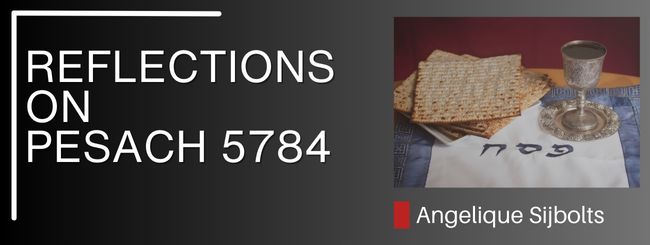בס”ד
Insights for Noahides
There are Jewish holidays that apply only specifically to Israel and there are Jewish holidays that also have universal significance. Although Noahides are not obligated to observe these holidays, it is advisable to pay attention to them, given their importance.
One of the holidays is Pesach because we read in Mishna Rosh HaShanah 1:2
At four times the world is judged: on Pesach for grain, on Shavu’ot for fruit, on Rosh HaShanah they all go before him like sheep of the flock, as it is written, “He forms their hearts as one, he understands all their deeds.” (Psalm 33). On Sukkot, the world is judged by water.
Pesach, the festival of the Jews celebrated for over 3333 years, commemorates the liberation of the Jewish people by G-d’s mighty hand and outstretched arm on the fifteenth day of Nissan in the year 2448 since the creation of the world. On this day, the Jewish nation was born, and their journey to Mount Sinai began, where G-d gave the Torah to them through Moses.
On this day, Noahides can pay extra attention to the idea that it is G-d who redeems and saves, and that we can only personally place our trust and faith in Him when it comes to things in our lives that require liberation or help from Him. As mentioned above, it is the day when the people began their journey to Sinai, where G-d confirmed the Seven Noahide Laws. Noahides can focus on accepting His Kingship on this day and consciously accepting the Seven Commandments while striving to improve the good qualities that a person should develop. It is not obligatory, but it is advisable to count the Omer together with the Jews, focusing on this self-development.
On this day, Noahides can also look forward to the future when we know that in the time of the Messiah, the people of Israel will be redeemed from the exile of the nations and will be able to dwell safely in their own land, where the Temple will be rebuilt. It will be a time when the entire world will recognize G-d’s redeeming power, as the prophet Isaiah (52:8-10) said: “They will see it with their own eyes as G-d returns to Zion. Burst into songs of joy together, O ruins of Jerusalem, for G-d will comfort his people; He will redeem Jerusalem. G-d has bared His holy arm in the sight of all the nations; all the ends of the earth will see the salvation of our G-d.”
For Jews, Pesach lasts eight days, but for Noahides, it is a one-day festival on the fifteenth of Nissan. And although all the above points can be observed by Noahides, it is important to realize that this day is primarily focused on the judgment of grain.
On this day, G-d determines which nations will prosper and which will experience famine. It is therefore important to pray for the sustenance of the world at this time. That is why the prayer for dew is also recited on this day. Excessive rain and humidity can cause the grain to rot, while too little rain and humidity can hinder its growth. It is good to ask G-d on this day for a sufficient amount of moisture to support the crops and the world without harming the drying grain. This prayer is recited during the morning prayers on the first day of Pesach. It is appropriate to share communal meals at this time, eating bread and grain-based foods.
As you can see, Noahides do not (specifically) eat unleavened bread on this day. In fact, every command given to a Jew associated with a Jewish holy day, such as eating unleavened bread, is specifically prohibited for a non-Jew to observe on those days, as doing so would be making a holy day for oneself, falling under the prohibition of “creating one’s own religion.” However, if a non-Jew is invited to a Jew’s house on the night of Pesach and unleavened bread is served, it is not forbidden for the non-Jew to eat it because they are honoring their Jewish host and not eating it as a religious ritual for themselves. Of course, it is always permissible to eat unleavened bread purely because you enjoy it.
Learning Points
1. Pesach commemorates the liberation of the Jewish people by G-d, emphasizing the importance of trusting in divine redemption and salvation.
2. Noahides can use Pesach as an opportunity to reflect on accepting G-d’s Kingship and consciously embracing the Seven Noahide Laws for personal growth and development.
3. The festival also looks forward to a future redemption, where all nations will recognize G-d’s power and Jerusalem will be comforted and redeemed.
4. While Pesach lasts eight days for Jews, it is a one-day festival for Noahides, focusing on the judgment of grain and praying for the sustenance of the world.
5. Observing communal meals and refraining from certain practices associated with Jewish holy days demonstrate respect for Jewish traditions while honoring the significance of Pesach.
By Angelique Sijbolts
Sources:
The Noahide Laws by Yeshiva Shoshanim lesson 33 p. 3
The Divine Code by Rabbi Moshe Weiner, 4e edition chapter 3 p. 59
See also the following blogs:
Pesach message from Rabbi Tani Burton 5783
15 Nissan 5783 – Pesach
Pesach and the four sons
Pesach Message from Rabbi Moshe Weiner
© Copyright, all rights reserved. If you enjoyed this article, we encourage you to distribute it further.
Our blogs may contain texts/ quotes/references/links of
Mechon-Mamre.org, Aish.com, Sefaria.org, Chabad.org AskNoah.org
that contain copyrights and which we may use with there permission.
